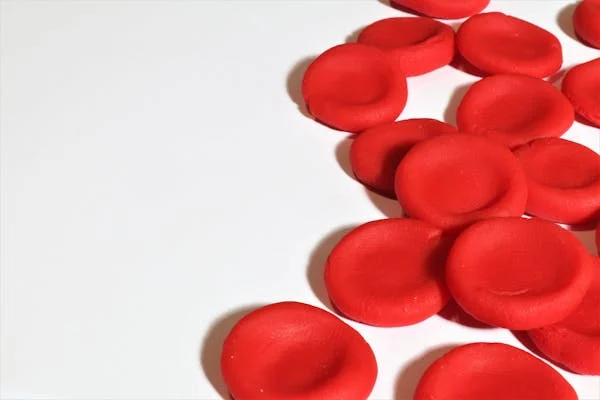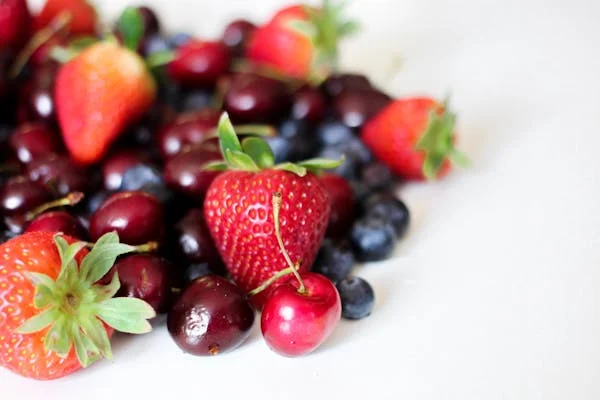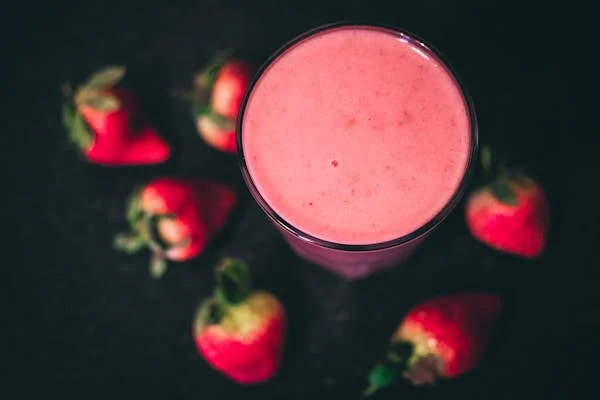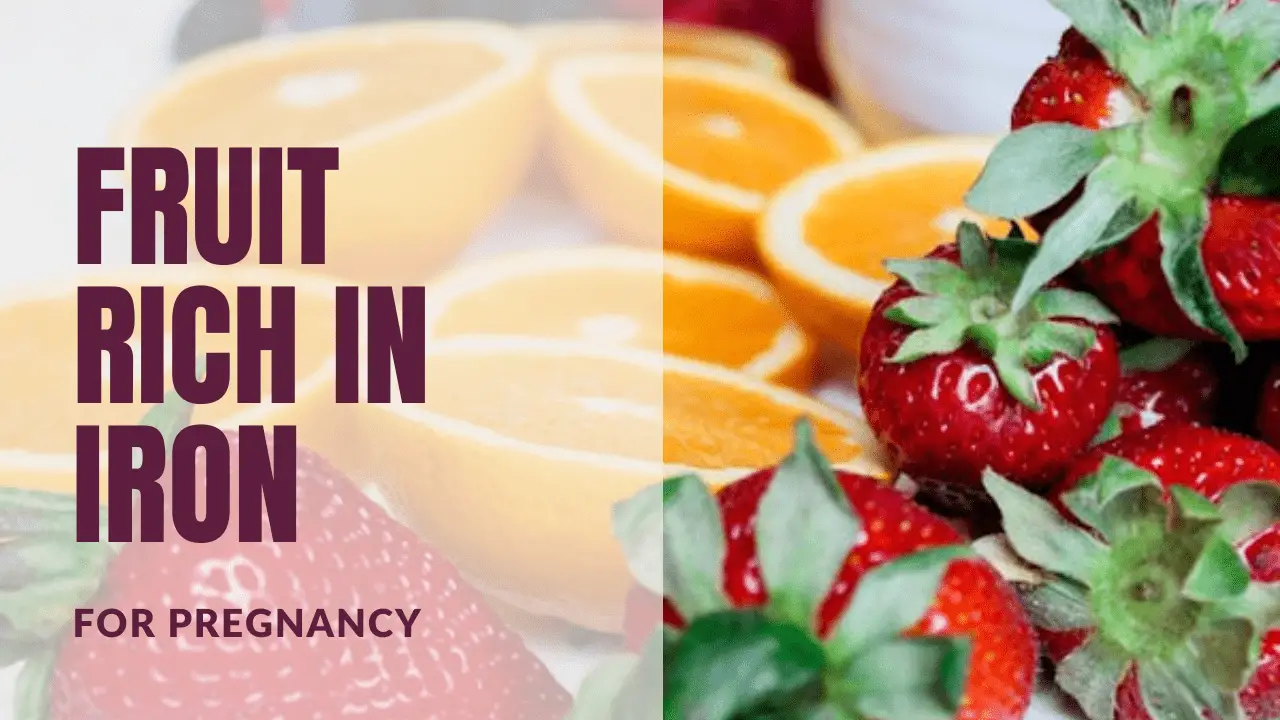For the sake of the developing child and the mother, it is essential to maintain appropriate iron levels during pregnancy. Hemoglobin is produced with the aid of iron and is necessary for delivering oxygen to cells.
Unfortunately, iron deficiency is common in pregnant women, which can result in weakness, exhaustion, and other health problems. Including natural sources of iron in your diet is a fantastic approach to increasing your intake, even though pills can also be helpful.
Fruits high in iron are one of the greatest ways to achieve this throughout pregnancy. These fruits include a range of vitamins, minerals, and antioxidants that promote general health in addition to the essential iron.
In this blog post, we will explore the top 10 fruits rich in iron for pregnancy, ensuring you have delicious and nutritious options to keep your iron levels in check.
Why Iron is Essential for Pregnant Women:
One essential mineral that is very important during pregnancy is iron. It is necessary for the synthesis of hemoglobin, the red blood cell protein that transports oxygen from the lungs to the body’s other tissues.
A woman’s blood volume greatly rises during pregnancy to support the developing baby, which raises the need for iron. Pregnant women must maintain appropriate iron levels due to the increased demand in order to protect their own health as well as the health of their unborn child.
Anemia during pregnancy is a condition marked by weakness, pale complexion, and exhaustion. Complications include premature birth, low birth weight, and postpartum depression, which can result from severe anemia.
Iron also helps a baby grow and develop, which includes the development of healthy brain cells.
Benefits of Iron: Iron is not only vital for preventing anemia but also supports a robust immune system, reduces the risk of preterm labor, and improves overall energy levels.
For pregnant women, consuming iron-rich foods, including q for pregnancy, is a natural and effective way to meet their increased iron needs.

Risks of Iron Deficiency: A low iron level might have detrimental effects on the mother and child. The mother may experience extreme exhaustion, cognitive decline, and weakened immunity, increasing her risk of infection.
It may cause delays in the baby’s growth and raise their risk of infection after birth.
Expectant moms can make sure they naturally achieve their iron requirements by including fruits high in iron throughout pregnancy in their diet. In addition to iron, these fruits offer vital vitamins, minerals, and antioxidants that promote general health and well-being throughout pregnancy.
Top 10 Fruits Rich in Iron for Pregnancy:
For the benefit of the growing unborn child as well as the expectant woman, sufficient iron consumption during pregnancy is crucial. Iron is essential for the synthesis of hemoglobin and helps maintain the larger blood volume.
https://youtube.com/shorts/H-W_lzPEz3E?feature=share
Pregnancy-related iron-rich fruits are a tasty and natural method to meet these elevated needs in your diet. The top 10 fruits that are especially high in iron and advantageous for expecting mothers are as follows:

-
Prunes:
-
- Prunes are dried plums that are not only high in iron but also packed with fiber, which helps alleviate constipation, a common issue during pregnancy. They are also rich in vitamins and antioxidants that promote overall well-being.
-
Mulberries:
-
- These juicy berries are an excellent source of iron and vitamin C, which enhances iron absorption. Mulberries are also rich in antioxidants, promoting a healthy immune system and protecting against oxidative stress.
-
Olives:
-
- Especially black olives are rich in iron. They also contain healthy fats, which are essential for the baby’s brain development. Olives can be easily added to salads or eaten as a snack.
-
Dates:
-
- Dates are a powerhouse of iron, natural sugars, and fiber. They provide an energy boost, help maintain healthy blood sugar levels, and support digestive health due to their high fiber content.
-
Figs:
-
- Both fresh and dried figs are rich in iron and other essential minerals like calcium and potassium, which are crucial for maintaining strong bones and overall health during pregnancy.
-
Raisins:
-
- These dried grapes are a convenient and tasty snack that offers a good amount of iron and energy. Raisins are also beneficial for digestion because of their fiber content.
-
Persimmons:
-
- This vibrant orange fruit is high in iron and vitamin C, making it a great choice for boosting iron levels and supporting the immune system. Persimmons can be enjoyed fresh or dried.
-
Blackberries:
-
- Blackberries are not only rich in iron but also provide essential nutrients like vitamin K and folate, which are important for the baby’s development. They are also high in antioxidants.
-
Raspberries:
-
- These berries contain a decent amount of iron and are rich in antioxidants. Raspberries support overall health and boost the immune system, making them an excellent addition to a pregnancy diet.
-
Strawberries:
-
- Strawberries are not only delicious but also contain iron and vitamin C, which aid in iron absorption. They are rich in antioxidants and fiber, promoting healthy digestion and immune function.
Including these fruits rich in iron for pregnancy in your diet can help you meet your nutritional needs naturally. These fruits can be enjoyed fresh, added to smoothies, cereals, and salads, or used as healthy snacks, ensuring a tasty and nutritious way to boost your iron intake.
Nutritional Benefits of Each Fruit:
Incorporating a variety of fruits rich in iron for pregnancy not only helps meet iron requirements but also provides a plethora of other essential nutrients that support overall health and well-being. Here are the detailed nutritional benefits of each of the top 10 iron-rich fruits:
- Prunes:
- Iron: Prunes are a good source of iron, which helps prevent anemia.
- Fiber: High in dietary fiber, they aid in digestion and help alleviate constipation.
- Antioxidants: Prunes contain antioxidants that protect cells from damage and reduce inflammation.
- Vitamins and Minerals: They also provide vitamins A and K, potassium, and magnesium, which support various bodily functions.
- Mulberries:
- Iron: Mulberries are rich in iron, supporting red blood cell production.
- Vitamin C: High in vitamin C, they enhance iron absorption and boost the immune system.
- Antioxidants: They contain anthocyanins and resveratrol, which have anti-inflammatory and antioxidant properties.
- Fiber: They offer dietary fiber, promoting healthy digestion.
- Olives:
- Iron: Especially black olives, are a good source of iron.
- Healthy Fats: Contains monounsaturated fats, beneficial for heart health and the baby’s brain development.
- Vitamin E: High in vitamin E, an antioxidant that protects cells from damage.
- Other Nutrients: Provide vitamins A and K, and calcium, supporting bone health.
- Dates:
- Iron: Dates are rich in iron, which helps maintain healthy blood levels.
- Natural Sugars: Provide a quick energy boost due to their high natural sugar content.
- Fiber: High in fiber, aiding in digestion and preventing constipation.
- Vitamins and Minerals: Contains potassium, magnesium, and vitamins B6 and A, supporting overall health.
- Figs:
- Iron: Both fresh and dried figs are good sources of iron.
- Calcium and Potassium: Essential for maintaining bone health and muscle function.
- Fiber: High in dietary fiber, promoting digestive health.
- Antioxidants: Contain polyphenols, which have antioxidant properties.
- Raisins:
- Iron: Raisins provide a significant amount of iron, boosting hemoglobin levels.
- Fiber: High in fiber, supporting digestive health and preventing constipation.
- Natural Sugars: Offer a quick source of energy.
- Vitamins and Minerals: Contains potassium, calcium, and antioxidants, supporting overall health.
- Persimmons:
- Iron: Persimmons are high in iron, helping to meet daily iron needs.
- Vitamin C: Rich in vitamin C, enhancing iron absorption and boosting the immune system.
- Fiber: High in dietary fiber, aiding in digestion.
- Antioxidants: Contain beta-carotene and other antioxidants, protecting against cell damage.
- Blackberries:
- Iron: Blackberries are rich in iron, supporting healthy blood levels.
- Vitamins and Minerals: Provide vitamins C and K, folate, and manganese, which are important for overall health.
- Antioxidants: High in antioxidants, protecting against oxidative stress.
- Fiber: Contains dietary fiber, promoting digestive health.
- Raspberries:
- Iron: Raspberries contain a decent amount of iron, supporting hemoglobin production.
- Antioxidants: High in antioxidants, reducing inflammation and protecting cells.
- Vitamins and Minerals: Rich in vitamins C and K, and folate, supporting the immune system and fetal development.
- Fiber: Provide dietary fiber, aiding in digestion.
- Strawberries:
- Iron: Strawberries offer iron, contributing to healthy blood levels.
- Vitamin C: High in vitamin C, enhancing iron absorption and boosting immunity.
- Antioxidants: These contain antioxidants like anthocyanins, which protect against cell damage.
- Fiber: Rich in fiber, promoting digestive health.
By including these fruits rich in iron for pregnancy in your diet, you not only ensure an adequate intake of iron but also benefit from a wide range of vitamins, minerals, and antioxidants that support overall health and well-being during pregnancy.
Incorporating These Fruits into Your Diet:
Including fruits high in iron for pregnant women in your regular meals can be a fun and healthy way to eat. These fruits supply vital vitamins, minerals, and antioxidants that promote general health in addition to helping you achieve your iron requirements. Here are a few tasty and useful ways to incorporate these fruits, which are high in iron, into your diet:

- Smoothies and Juices:
- Blend prunes, mulberries, blackberries, raspberries, and strawberries into a nutrient-packed smoothie. Add a handful of spinach or kale for an extra boost of iron and other nutrients.
- Make a refreshing juice using a combination of iron-rich fruits and a splash of citrus juice to enhance iron absorption.
- Breakfast Options:
- Add chopped dates, raisins, and figs to your morning oatmeal or yogurt. This not only increases your iron intake but also provides a sweet and satisfying start to your day.
- Top your cereal or granola with fresh strawberries, raspberries, or blackberries for added flavor and nutrition.
- Snacks:
- Keep a mix of dried fruits like prunes, dates, raisins, and figs handy for a quick and healthy snack on the go.
- Enjoy olives as a savory snack, paired with cheese or whole-grain crackers.
- Salads:
- Incorporate fresh berries, such as strawberries, blackberries, and raspberries, into your salads for a burst of flavor and a nutritional boost.
- Add sliced persimmons and olives to your salads for a unique and iron-rich twist.
- Desserts:
- Use figs, dates, and raisins in baking recipes, such as muffins, cookies, or energy bars, to naturally sweeten your treats while increasing your iron intake.
- Make a fruit salad with a mix of fresh iron-rich fruits and a drizzle of honey or a squeeze of lemon juice for a healthy and delicious dessert.
- Cooking and Baking:
- Incorporate prunes, dates, and raisins into savory dishes, such as stews, tagines, or grain-based dishes, to add a touch of sweetness and iron.
- Use mulberries and figs in baking recipes like bread, cakes, or pastries to enhance both flavor and nutritional content.
- Daily Intake Recommendations:
- Aim to include at least two servings of iron-rich fruits in your daily diet. A serving size could be a handful of berries, a few dates, or a slice of persimmon.
- Pair these fruits with other iron-rich foods, like lean meats, legumes, and leafy greens, to maximize your iron intake and absorption.
By incorporating these fruits rich in iron for pregnancy into your diet in creative and varied ways, you can ensure that you meet your nutritional needs while enjoying a diverse and flavorful diet.
These simple and delicious ideas make it easy to include a wide range of iron-rich fruits in your meals and snacks, supporting your health and well-being throughout your pregnancy.
Conclusion:
Pregnancy-related iron requirements can be satisfied with a tasty and practical diet that includes fruits high in iron. These fruits include vital vitamins, minerals, and antioxidants that promote general health and well-being in addition to preventing anemia.
You can make sure that you and your unborn child remain robust and healthy during your pregnancy by incorporating a range of these iron-rich fruits into your regular meals and snacks. Click to learn more.
FAQs:
- Why is iron important during pregnancy?
Iron is crucial during pregnancy because it supports increased blood volume and hemoglobin production, which are essential for delivering oxygen to both the mother and baby.
- Which fruits are high in iron for pregnancy?
Prunes, mulberries, olives, dates, figs, raisins, persimmons, blackberries, raspberries, and strawberries are all fruits rich in iron for pregnancy.
- How can I incorporate iron-rich fruits into my diet?
You can add them to smoothies, salads, breakfast cereals, snacks, and baked goods to ensure you get a variety of nutrients and flavors.
- Can iron-rich fruits help prevent anemia during pregnancy?
Yes, consuming fruits rich in iron can help prevent anemia by boosting your iron intake and supporting healthy hemoglobin levels.
- Are there other benefits to eating iron-rich fruits during pregnancy?
Besides iron, these fruits provide vitamins, minerals, fiber, and antioxidants, which support overall health, digestion, and immune function during pregnancy.
